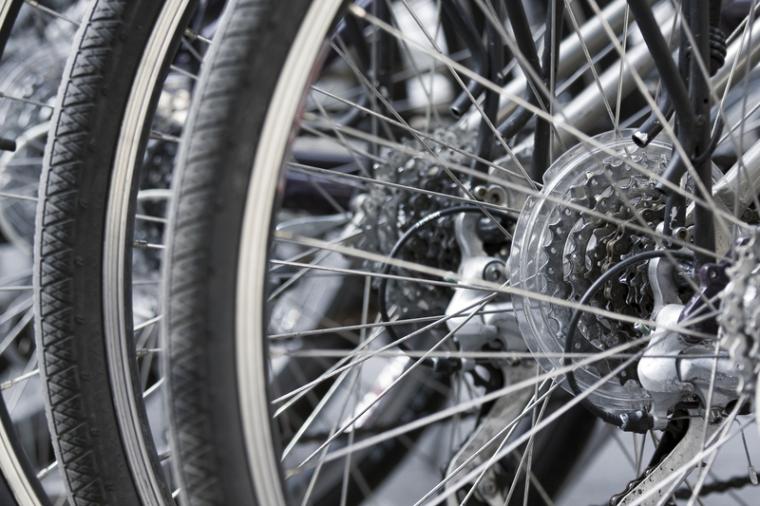
To support transformative projects, enhance sustainable infrastructure and connect communities along the East Coast Greenway route, the East Coast Greenway Alliance aided state and local partners in securing more than $70 million in federal funding from the U.S. Department of Transportation’s RAISE Discretionary Grant program for the second consecutive year.
For fiscal year 2024, seven East Coast Greenway and Greenway-adjacent projects were awarded RAISE (Rebuilding American Infrastructure with Sustainability and Equity) funding:
$25 million in Washington, D.C.: Construction of 1.8 miles for the New York Avenue Bridge and Lincoln Connector Trail Project. This project features a bicycle and pedestrian bridge connecting a new shared-use path in northeast Washington’s Fort Lincoln neighborhood to the Anacostia Riverwalk Trail segment of the East Coast Greenway, creating a new connection to Maryland. Included in the project are the construction of a nearly two-mile multimodal path and the rehabilitation of the New York Avenue NE Bridge, significantly improving connectivity and safety for pedestrians, cyclists and more.
$25 million in Maine: Funding for active transportation and roadway infrastructure on Tukey’s Bridge and in the East Deering neighborhood of Portland, which will include shared-use paths and bike and pedestrian infrastructure on neighborhood roads and intersections that will continue to enhance the East Coast Greenway route.
$15.5 million in Maryland: Planning for 2.4 miles of the Hanover Street Corridor revitalization project connecting South Baltimore neighborhoods along the developing Baltimore Greenway Trails Network, a 35-mile trail loop throughout the city. The project includes a segment of the East Coast Greenway from MedStar Harbor Hospital over the Patapsco River to South Baltimore’s Brooklyn neighborhood.
$5.3 million in Virginia: Construction of 2.2 miles of the Suffolk Seaboard Coastline Trail - Segment 3C in Suffolk, which will connect with the already funded Segment 3B and, in turn, a recently designated East Coast Greenway segment. When complete, the Suffolk Seaboard Coastline Trail will consist of 20 miles of former railroad passes, connecting Portsmouth and Chesapeake to Isle of Wight County via Suffolk. The trail is a part of a broader trail network in the region, the South Hampton Roads Trail, that will connect Suffolk to Norfolk and Virginia Beach, terminating at the Atlantic Ocean.
$1.4 million in New Hampshire: Planning and engineering for the conversion of 2.3 miles of a former railroad through Hampton Marsh into phase three of the New Hampshire Seacoast Greenway in Hampton, which will provide recreational and economic opportunities while restoring a historic transportation facility in the former Boston and Maine Railroad. When finished, the 17-mile New Hampshire Seacoast Greenway will complete the East Coast Greenway route through the state.
$800,000 in Maryland: Transit-oriented development as part of Phase II of Station Square in Aberdeen, which will revitalize the area around its MARC/Amtrak train station. The project includes multi-modal improvements that could benefit a potential shift of the East Coast Greenway spine route in northeast Maryland, following U.S. Highway 40 from Havre de Grace through Aberdeen.
$750,000 in Georgia: Funding for the Camden County Joint Comprehensive Transportation Plan, which will identify infrastructure projects essential for the future. Camden County is significant for the East Coast Greenway as it links Georgia and Florida along the route. Route improvements in the county, including future ferry and/or bridge connections, will be crucial.
This sustained East Coast Greenway investment at the federal level follows a national trend. Across the United States, nearly one-quarter of 2024 RAISE grants awarded, “totaling more than $425 million, were for projects entirely focused on trails, walking and biking, with many emphasizing infrastructure investments that would create more connectivity within neighborhoods and between regions,” according to the Rails-to-Trails Conservancy.
Support by Alliance staff members included working with communities to prioritize these projects and get them application-ready, assistance with applications, project area maps, letters of support and advocating and coordinating with elected officials to help secure funding.
This record total builds upon previous record-setting totals of $70 million awarded to Greenway RAISE projects in 2023 and $50 million in 2022.
“Collaborating closely with our committed state and local partners, the East Coast Greenway Alliance team has once again played a crucial role in obtaining federal funding for numerous transformative projects along our evolving route,” said East Coast Greenway Alliance Executive Director Dennis Markatos-Soriano. “Sustained federal investment, such as the nearly $200 million in RAISE grants awarded toward the East Coast Greenway over the past three years, is essential for achieving our vision of completing a network of accessible and equitable greenways across our 15 states and 450 communities.”
These funded projects will be utilized to improve infrastructure, enhance connectivity and promote sustainable transportation options along the East Coast Greenway, a 3,000-mile in-development trail network that stretches from Maine to Florida. By investing in active transportation infrastructure, these projects will foster healthier lifestyles, boost local economies and promote tourism in their respective regions.
According to the U.S. Department of Transportation, the “RAISE Discretionary Grant program provides a unique opportunity for the DOT to invest in road, rail, transit and port projects that promise to achieve national objectives.”
“After decades of underinvestment, the condition of America’s infrastructure is now finally getting better instead of worse – and today we proudly announce our support for 148 more projects in communities of every size across the country,” said U.S. Transportation Secretary Pete Buttigieg. “Through President Biden’s Bipartisan Infrastructure Law, we’re funding projects across the country to make roads safer, make it easier for people to move around their community, make transportation infrastructure more resilient to extreme weather, and improve supply chains to keep costs down for consumers.”
Click for full details on the projects funded, as well as a map of the grant recipients.

There are no comments
Please login to post comments